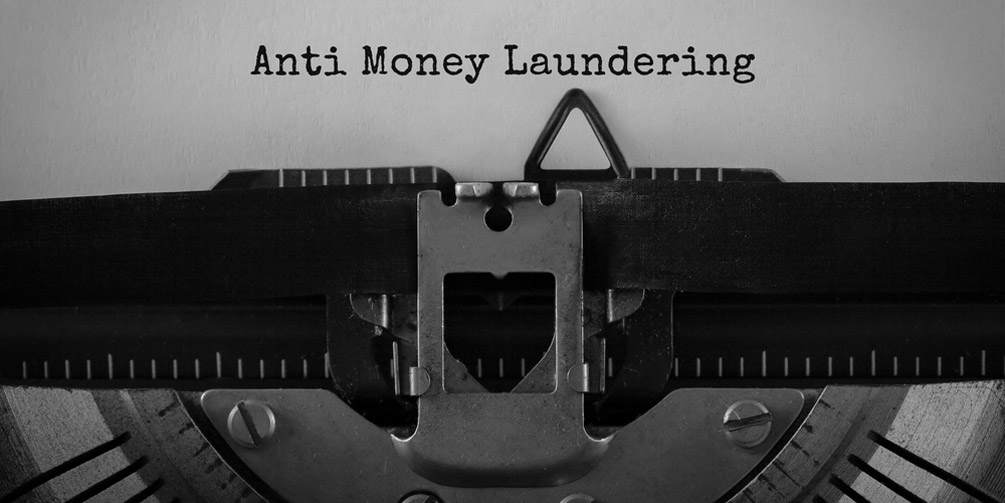Blog
An Update on Anti-Money Laundering (AML) in Europe

Anti-money laundering in Europe will be one of the topics to be discussed at #TLTaxCon19 in Barcelona this coming October. Make sure to join the discussion by grabbing your tickets HERE. Hope you can join us!
This week, there was an excellent article on EuroMoney highlighting how Europe has fallen behind on the prevention of financial crime and money laundering.
A huge part of the issue, according to author Dominic O'Neill, is that European banks feel far more threatened by the US government than by its own tax authorities.
All of this has come to the fore following the massive scandal involving a Danske Bank branch located in Estonia, which funneled close to 200 billion dollars in funds between 2007 and 2015 from non-residents in what is deemed one of the largest cases of money laundering ever.
A Danske Bank investigation into this suspicious activity last September found that close to half of the bank's riskiest non-resident clients in Estonia (about 6,200) "were sufficiently suspicious to be reported to the police—about 10 times more than the bank had originally reported," with most of this money coming from Estonia, Russia, Latvia, Cyprus and the UK and heading to Estonia, Latvia, China, Switzerland, Turkey, Britain and another 150 jurisdictions.
As a result of this investigation, the US tax authorities launched a criminal investigation into these money laundering cases, which has in turn sparked plenty of more worry from Danske's investors as hefty fines will undoubtedly be imposed on the bank.
Following Danske's investigation and conclusion that many of its operations in Estonia and other neighboring countries such as Russia, Latvia and Lithuania involved money laundering, the bank's management opted to discontinue its services in these jurisdictions.
Denmark's financial authority also imposed additional penalties on the Danish bank, raising Danske's compliance and reputational risks and increasing its capital requirements by about 1.5 million dollars.
However, what this case brought to light is the fact that money laundering is not limited to the UK or some of the largest global financial centers but also involves some of the more "obscure" jurisdictions.
As quoted in EuroMoney, Tom Keatinge, who runs the financial crime division at the UK think thank Royal United Services Institute, says, "There's been a tendency in some countries in Europe to see money laundering as an Anglo-Saxon issue, something that happens in the casino-banking sector in London, and not in places like Stockholm or Tallinn."
According to EuroMoney, what these recent cases have highlighted is the fact that "these national authorities are too influenced by the economic benefit of offshore finance and big banks; that they lack sufficient resources; and that the weakest links allow dirty cash to flow anywhere in the EU."
Furthermore, argues EuroMoney, the EU's "banking sector is attractive to criminals because the lack of common efforts to combat money laundering inside the EU have made it harder to stop criminals moving across borders and made it easier for states to engage in "international regulatory competition", to use the words of an ECB report in November."
Along these lines, O'Neill reports that the EU is softer on its banks, imposing fines that pale in comparison to those set by the US, and that European tax authorities prefer working behind the scenes rather that confronting the guilty banks out in public.
O'Neill writes: "The quieter approach of the supervisors in places such as Germany – BaFin's fines are not even made fully public – has done nothing to ease suspicions, especially in the US, that they are soft on banks. The consensus, even in the financial community, is that aggressive legal action in the US has forced banks to get their compliance units in order to a much greater degree than the European supervisors' attitude of working with the banks."
Finally, this EuroMoney article posits that there's an overall lack of clarity when it comes to "where responsibilities lie in cross-border banking groups in Europe, so that home countries assume the host country has a hold on the situation."
O'Neill adds: "The confusion over responsibilities is made even worse as states are overly protective of their authority. This leads, at the very least, to a lack of economies of scale at the supervisory level and at financial intelligence units (FIUs) – the bodies that collate and sieve bank reports on suspicious activity, before them handing to the police. Banks have grown so large and international that they are much harder to control when the supervisory setup has remained parochial and underfunded."

New EU Anti-Money Laundering Blacklist Coming Soon
In response to many of these issues, the EU has decided to put together a new blacklist of non-cooperative jurisdictions following a disastrous earlier effort, which included Saudi Arabia and four minute US territories and led to plenty of criticism from both.
EU justice commissioner Vera Jourova will launch the new blacklist following a more detailed methodology, one that will not be "one size fits all," incorporating a grey list, and actually communicating with implicated jurisdictions prior to naming and shaming them in public.
Fears do exist that this exercise ultimately ends up being influenced by political allegiances rather than an objective analysis of jurisdictions involved in money laundering.
EU spokesman Christian Wigand, however, told Quartz, "The Commission is also working with the [non-EU] third countries concerned given that our main aim is to improve their anti money-laundering and terrorist financing framework."
Laure Brillaud, who works for Transparency International in Brussels, believes the EU should make this entire process a whole lot more transparent and include in its list many of the EU jurisdictions involved in shady financial operations.
"We've seen with recent scandals that the EU is a very attractive place for money laundering and dirty money," he said.
"The EU should make sure to clean up its own backyard, and make sure it doesn't welcome dirty money via its financial system and real estate sector."
EU Improvements in Battle Against Money Laundering
Despite all of this, improvements can be found in certain EU jurisdictions.
For instance, US Representative Maxine Waters, who heads the House of Representative's House Financial Services Committee, declared that the work being done between the US and Cyprus to curtail money laundering has been a success.
Despite there still being work to be done, Waters said during a recent bipartisan visit to the island "that Cyprus is up to the challenge" to combat money laundering and financial crime.
Likewise, both the Swedish and German governments, as well as the European Banking Authority (EBA), have opted to ramp up their efforts against money laundering by increasing the number of people involved in this sector.
According to O'Neill, "the Swedish FI is now doubling its staff in financial crime compliance to a couple of dozen heads," while "the German government also awarded BaFin additional funds to increase its anti-money laundering staff from about 70 to 100 people."
The EBA will boost its team of two to twelve by 2022 and, as reported by EuroMoney, "develop a database with the national authorities to make it easier for states to share information on general money-laundering risks – but not specific clients or transactions."
France and the UK have also incorporated "their own versions of deferred prosecution agreements to try to benefit from a tool the US has used to get companies to accept wrongdoing and financial penalties."
Furthermore, the Financial Times reports that penalties for money launderers in the UK have hit an all-time high.
A Thomson Reuters investigations shows that "the average length of jail sentences for offenders convicted of money laundering had increased by 32 per cent in the past decade, from a term of 20.5 months in December 2000."
What are your thoughts on the work being done by the EU against money laundering and financial crime? Let us know during our conference in Barcelona this coming fall!